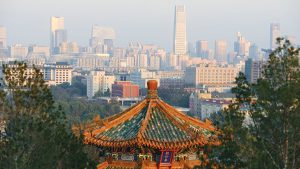Bloomberg
After a bumper year of stock listings, Asian companies may find it hard to repeat the success in 2022 given the prospect of rising interest rates and China’s tightening grip on Big Tech.
Thanks to a blistering first half amid a global boom, initial public offerings in the region have reached $190 billion so far this year, a record and up 31% from the whole of 2020. But the momentum has weakened notably in recent months as Beijing escalated a regulatory assault on private enterprise, putting major deals on hold and injecting uncertainties into next year.
Bankers say they expect Asia’s IPO market to be less frenzied and more balanced in 2022, as higher inflation erodes valuations of tech firms and tighter US monetary policy reduces the supply of idle cash. The listings landscape may also look more diverse, with South Korea and India charging ahead and industries from clean energy to financial services filling the void left by once-dominant Chinese tech.
“Markets in 2022 are going to face a more normalised environment,†said William Smiley, co-head of equity capital markets at Goldman Sachs Group Inc in Asia ex-Japan. “Withdrawal of fiscal and monetary stimulus, coupled with expectations for higher inflation may challenge risk assets, including equity markets.â€
Beijing’s tight scrutiny of its tech firms, on issues ranging from data security to a loophole long used by companies to list overseas, also is expected to
continue to slow the pace of fundraising from the sector.
This, plus the secondary market’s sluggish performance, have pushed Hong Kong, a popular destination for Chinese tech firms, out of the world’s top three listing venues. Several companies, from snack producer Weilong Delicious Global Holdings to Apple’s supplier Biel Crystal Manufactory, have pushed back share offerings in the city, a development set to make the last three months of this year the weakest fourth quarter since 2018 for Asian IPOs.
Picking up the slack could be Chinese firms not affected by Beijing’s regulatory clampdown or beneficiaries of the nation’s development priorities, including new energy providers and electric vehicle makers.
 The Gulf Time Newspaper One of the finest business newspapers in the UAE brought to you by our professional writers and editors.
The Gulf Time Newspaper One of the finest business newspapers in the UAE brought to you by our professional writers and editors.
